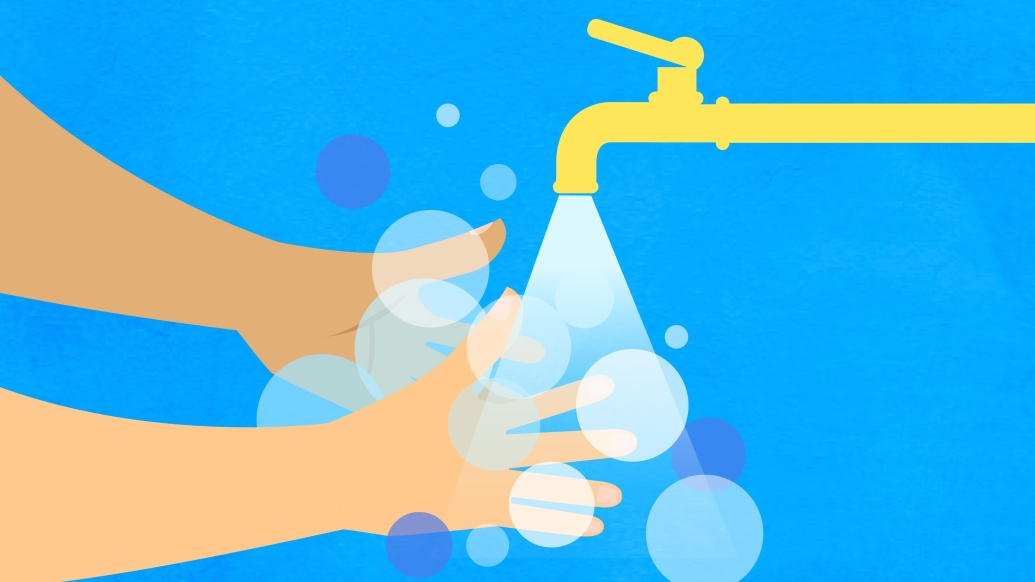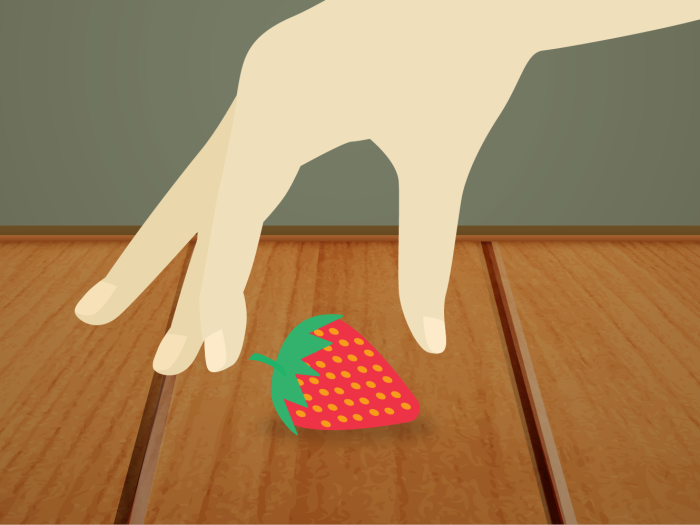Consumers shouldn’t fear the forthcoming federal ban on antibacterial soap ingredients, a U-M infectious disease specialist says. But effective hand-washing matters.
7:00 AM
Author |

For millions of people, antibacterial soap has long been considered a go-to for ensuring maximum cleanliness and the greatest protection against germs and disease.
SEE ALSO: 6 Things You Need to Know About Pneumonia
The Food and Drug Administration doesn't agree.
In early September, it issued a ban on over-the-counter hand soaps and body washes containing triclosan, triclocarban and 17 other active ingredients. Manufacturers have a year to comply with the ruling, which doesn't affect store-bought antiseptic rubs such as hand sanitizers or antibacterial products used in health care settings.
But consumers who view such soaps as simple safeguards at home needn't worry.
"Concentrate on washing (with regular soap) in typical scenarios — before eating, after using the bathroom, being around anyone who's sick in your household," says Laraine Washer, M.D., a clinical associate professor of infectious diseases at the University of Michigan Health System. "As much as we can make it a habit, that's the way to go."
That's because the physical practice of hand-washing, when done properly, is what helps keep infections and the spread of disease at bay. Soap itself doesn't kill germs; it works to break down oil chemically while scrubbing breaks down oil or dirt mechanically, and the germs are then rinsed away with water. So being thorough is important.
In issuing the ban, the FDA cited a lack of proof that the chemicals in antibacterial soap are safe. It asked manufacturers in 2013 to provide evidence that exposure to certain active ingredients posed no risks such as bacterial resistance or hormonal effects; sufficient data weren't attained.
Nor are such products necessarily more effective: Viruses, not bacteria, cause maladies such as influenza, sore throats and norovirus.
Which means "the effect of an antibacterial soap is no different than any other soap," Washer says, noting that alcohol-based hand rubs are not covered in the FDA ruling and are effective in killing most viruses.
The right way to wash
It's important for people to wash their hands whenever appropriate, says Washer, adding that "there are many missed opportunities" throughout the day to do so.
SEE ALSO: Bad News About the FluMist Nasal Spray
Beyond the scenarios above, touching an animal and handling garbage call for follow-up scrubs, according to the Centers for Disease Control and Prevention.
Hand-washing — which too often encompasses only a brief, soapless rinse, if anything — should involve at least 30 seconds under warm running water.
Says Washer: "Lather the soap on all the surfaces of the hand, including in between the fingers and the thumb, as well as tips of the fingers" that typically have the most contact with foreign and dirty surfaces.
Washer, an epidemiologist at U-M, says antibacterial products are more suitable in health care facilities where the risks and prevalence of bacteria are more pronounced. (Usage in that setting is presently under separate FDA review.)
But for most households, she says, plain old soap and water is just fine.

Explore a variety of health care news & stories by visiting the Health Lab home page for more articles.

Department of Communication at Michigan Medicine
Want top health & research news weekly? Sign up for Health Lab’s newsletters today!





